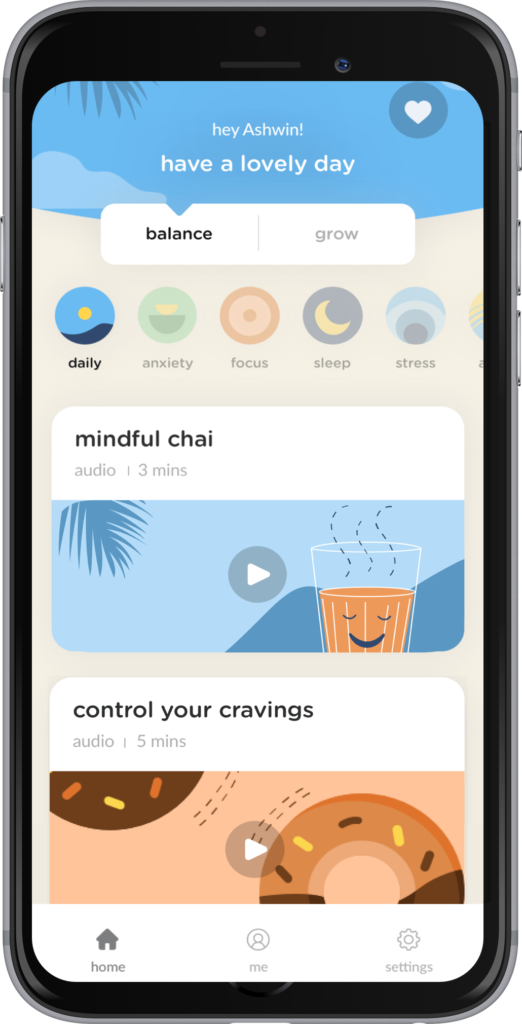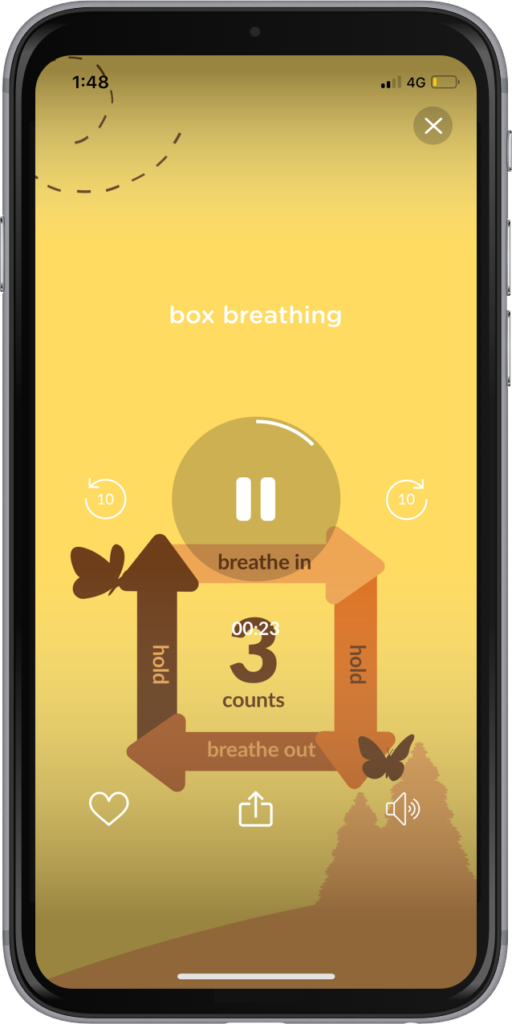Evolve > Meditation > How To Be Patient In Your Everyday Life
How to be patient is something everyone needs to sharpen, especially in the fast-paced
world. When Instagram stories last 15 seconds and attention spans are constantly decreasing, patience becomes not just a virtue but a skill to master!
There is a need for instant gratification with no waiting. One day deliveries, muscle gains in 5 days, ready-to-eat food packets and summaries of books so you don’t need to read! Life moves pretty fast. If you don’t stop and look around once in a while, you could miss it. Knowing how to be patient can help you enjoy life, connect with yourself and become more empathetic and at peace.
Table of Contents
What is Patience?
Broadly, patience is the ability to stay calm and control your impatience when things are not going right until it feels right. The easiest example that you can relate to would be to not honk as soon the traffic signal turns green. It feels annoying right when you are in front of the grid and everyone starts honking! Imagine how calmer you would feel if everyone had the patience to wait. Like everything else, patience is a skill that must be developed through practice.
Before learning how to be patient and calm, let’s looks at what is impatience, understand what is causing impatience, and then understand how you can improve your patience levels.
Impatience
The feeling of frustration triggers impatience when things aren’t going our way. This is the generation of instant gratification. We get impatient even if YouTube videos buffer for a second [coming from a generation of dial-up internet makes me wonder, how did we get here!]. Now that we know what impatience is, we have to identify the triggers that cause impatience and only then can we reach the root cause of the problem.
Symptoms of Impatience
- Fast breathing & heavy heart rate
- Being restless and not able to sit in one place
- Anger at the minutest issues
Triggers of Impatience
These can vary from person to person and also depends on the person’s patience levels. A simple way to understand your triggers is to keep a diary. Note down frequent triggers that make you feel impatient. You can examine these later, understand your response, and then devise a resolution to ensure you are not triggered that easily. You can definitely take care of the common physical symptoms such as hunger, fatigue and dehydration. If some specific people are your triggers, you must learn how to restrain our interaction with them and not let our emotions overcome us. Once you have identified the root cause, you can look at ways to develop patience over time. Some easy tips to build patience have been mentioned below:
How to be more patient in your everyday life
Here are 4 ways in which you can be more patient in your life. These strategies will help you develop patience. Mastering these strategies will make you patient with friends, family, enemies and circumstances.
- Practice mindfulness
- Do one thing at a time
- Take deep breaths and relax
- Make yourself wait
Practice mindfulness to be patient
A great way to improve patience is to practice mindfulness when doing everyday tasks. Drinking a milkshake? Enjoy every sip and notice the taste and temperature rather than gulping it down quickly. Scrolling through Instagram? Notice the sensations on your thumb every time you scroll and observe how you feel after liking some post. Whatever you do, do it slowly, mindfully and enjoy the present moment. Pay attention to what is going on and how you’re feeling as you do it. This refers to work or studies as well. You can even try practicing meditation to achieve mindfulness into your daily routine! This will help on how to be patient every day and let you fully enjoy each moment, rather than rush through things.
Do one thing at a time
Rather than trying to multitask your way through the day, slow it down and try doing one thing at a time. Not only will it teach you how to be patient, but also improve your productivity! By focusing your attention on just one thing at a time, you can enjoy it and do it right. Moreover, you won’t get impatient by thinking about all the other things you want to do right now. Don’t browse Instagram when you have to write a blog, but if you are browsing Instagram, scroll slowly and don’t do it mindlessly.
Take deep breaths and relax
You might get impatient easily and not like waiting. At such a time, just relax and take deep breaths. Taking slow deep breaths can help you balance and calm the mind and body. It’s a simple way to ward off any impatient feelings you are experiencing. If breathing doesn’t help, take a break from whatever you’re doing and go for a short walk. It will help you ease tension and the break will help you slow down!
Make yourself wait
Delaying gratification and making yourself wait is one of the simplest ways to improve your patience. Start with something small like waiting a few extra minutes before you check Twitter or drink your milkshake and then move on to something bigger. As you continue to practice delaying gratification, you will become better and learn how to be patient.
It’s a good thing to try and slow down and learn to be patient. It could help you enjoy the little things in life and help reduce stress as well. This is because you would be calmer and less restless every day! If that leads to more happiness, surely it is worth a try!
Evolve’s joyful meditations help you practice mindfulness, relax and slow down during the day so you can fully enjoy yourself! The Evolve US app is now live globally on Android & Apple, click here to try for free!

